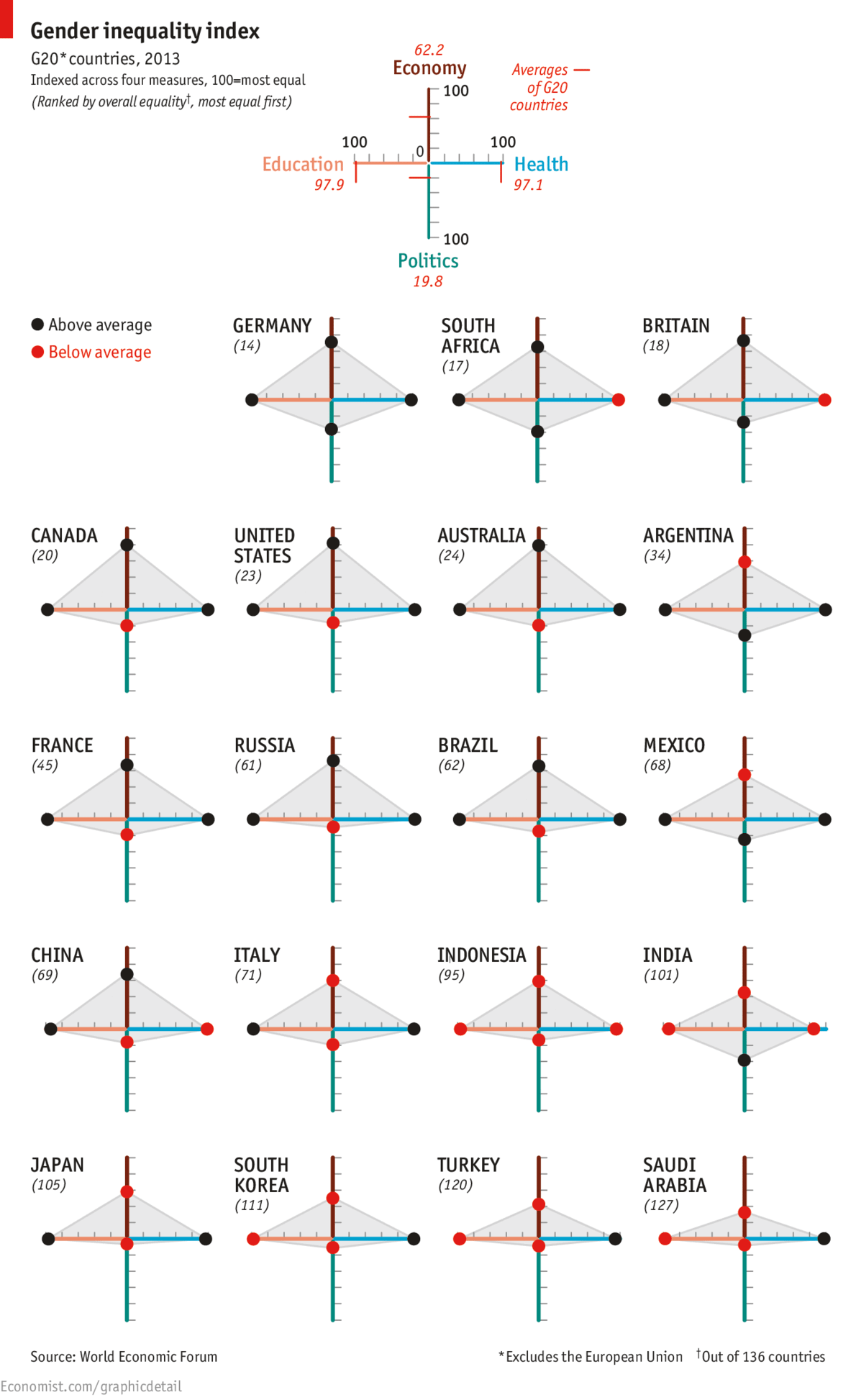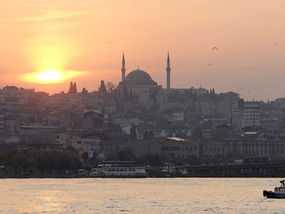Seeing as its International Women’s Day today, Hurriyet Daily News economics columnist Emre Deliveli uses the occasion to remind readers that the labor force participation (LFP) rate for women in Turkey is a woeful 29.5 percent (the average among countries that are part of the Organization for Economic Co-operation and Development, which Turkey is a member of, is 61 percent).
Improving the visibility and participation of women in the workplace has certainly been one of the areas where the current Turkish government has failed to take any strong action. The most recent World Economic Forum Gender Gap Index, for example, finds Turkey ranked 124 out of 135 countries. Beyond the low LFP rate for women, Turkey also has extremely low numbers of women in senior and managerial positions in government and academia.
Still, despite the discouraging numbers, things may be changing. From a recent article by Guven Sak, executive director of the Ankara-based Economic Policy Research Foundation of Turkey:
Recently, I chatted with a friend who is an industrialist from Konya province. He said, “Until recently, we preferred male employees. But the pool of male applicants has shrunk at the city center. So we started to run shuttles to attract employees from the other districts of Konya. The number of female employees has been increasing now.” Konya is among the ten provinces that recorded the highest growth in women’s employment from 2004 to 2011, with a figure above 100 percent. TEPAV’s calculations suggest that non-agricultural the FLFP rate is 20 percent in Turkey and 15 percent in Konya. But the city improved the rate from 7 percent in 2004. We have to note this remarkable improvement over the last seven years. Turkey has been changing with respect to women’s employment dynamics.
Let me draw some conclusions. First, with industry spreading towards it, Anatolia has been changing. In the 1980s, everyone was sure that opening up to the world would bring affluence. Today they are about to learn that if half of the population is confined to their homes, Turkey will not become affluent. Industry teaches this lesson: factories that were opened in Anatolia thanks to Özal’s reforms started to employ women only recently and out of necessity. Increases in women’s employment at the provincial level from 2004 to 2011 validate this. After three decades, market reforms continue to transform Anatolia. This is worth emphasizing.
Second, there is a strong positive relationship between provincial growth and women’s employment. We don’t have province-level growth series, but TURKSTAT releases the statistics on the size of completed or partially completed new buildings to be used as workplaces. The floor area of a new office, wholesale and retail trade, and industrial buildings grow as economic activity in the city becomes more vibrant. According to a study by TEPAV economist Güneş Aşık, women’s employment grows along with the area of new office buildings, and that of new buildings for retail trade in particular. First, let me stress that economic growth enhances women’s participation in the labor force. When it comes to skilled labor, employers open up to employing women, too. With growth and structural transformation, the services sector, where women’s employment is easier and more prevalent, also grows. As needs grow, wages increase.
As Deliveli points out, the ruling Justice and Development Party (AKP) has set a goal of raising the women’s LFP to 38 percent by 2023. It’s an admirable goal, but one that would still leave Turkey far behind where it should be.
via Turkey: Country’s Thick Glass Ceiling Slowly Cracking? | EurasiaNet.org.






